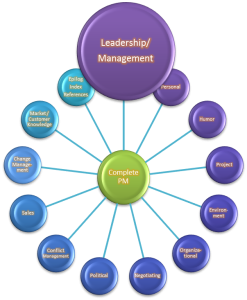4.2 Discussion Quality Control. Project teams need to have a systematic plan to improve any part of their project management process that creates mistakes/defects, breakdowns/delays, inefficiencies, and variation. The reading this week lists various quality management tools and techniques that are used to properly identify and manage these quality issues. Before completing the discussion this week, it is important to understand that you will need to view the project from a macro-systematic perspective and devise a technical approach that does not exclude subjective reasoning. By taking this approach, you will be able to formulate a plan for success.
Upon successful completion of this discussion, you will be able to:
- Assess project management performance.
- Determine quality performance controls.
- Demonstrate the understanding of communication by responding to a real-life situation.
Resources
- Textbook: Agile Fundamentals: A Comprehensive Guide to Using an Agile Approach
- Textbook: PMP Exam Prep
- Article: Vendors May Cost You More Than Your Project
- Article: Cost of Quality
- Template: Quality Management Plan
- Template: Quality Checklist
- Template: Quality Metrics
- Video: Culture of Quality
- Video: Learn What the 7 Quality Control Tools Are in 8 Minutes
- Video: How to Meet Your Quality Targets – Project Management
- [Note: The inclusion of publicly accessible video links in your courses and program should be considered neither a recommendation nor an endorsement of any products or services mentioned within them.]
Background Information
Project managers must be able to plan effectively as the project leader. Therefore, this exercise requires careful thought about what points would be best suited to address an issue. Remember, the problem is not a quality issue happening so much as it is the project manager not being prepared to create a strategy to respond to any type of quality breech.
Instructions

Leadership in Project Management
- Review the rubric to make sure you understand the criteria for earning your grade.
- PMP Exam Prep, read Chapter 8: Quality.
- In Agile Fundamentals: A Comprehensive Guide to Using an Agile Approach, read Chapter 14: Continuous Improvement, Continuous Improvement – Product
- Read the following articles:
- View the following templates:
- Watch the following videos:
- Culture of Quality(7:40 min) and/or read Culture of Quality Transcript
- Learn What the 7 Quality Control Tools Are in 8 Minutes(8:12 min) and/or read Learn What the 7 Quality Control Tools Are in 8 Minutes Transcript
- How to Meet Your Quality Targets – Project Management(4:38 min) and/or read How to Meet Your Quality Targets – Project Management Transcript
- Navigate to the threaded discussion and respond to the following prompts:
- Devise a five-point plan that you could use as a project manager in your Integrative Project if project obligations were in some way compromised.
- Construct your five-point plan and make sure you include a quality component in each part of your plan. You can use a quality tool or concept. It is up to you.
- In contrast to some of your prior courses, your initial post is due Day Three of the workshop, not Day Four.
- Your initial post should be a minimum of 200 words and include at least 1 reference. Responses to peers should be a minimum of 100 words.
- Properly cite and reference one or more of the workshop’s sources in your original post.
- All references and citations should be in APA format.
- Review the APA Style pagefor information on how to cite sources and format citations and references properly.
- You may also review the OCLS Evaluating Sources pageto see the criteria for credible Internet research websites.
- Read and respond to at least two of your classmates’ postings, as well as follow-up instructor questions directed to you, by the end of the workshop. Responses should be at least 100 words.
- Your postings also should:
- Be well developed by providing clear answers with evidence of critical thinking.
- Add greater depth to the discussion by introducing new ideas.
- Provide clarification to classmates’ questions and provide insight into the discussion.
